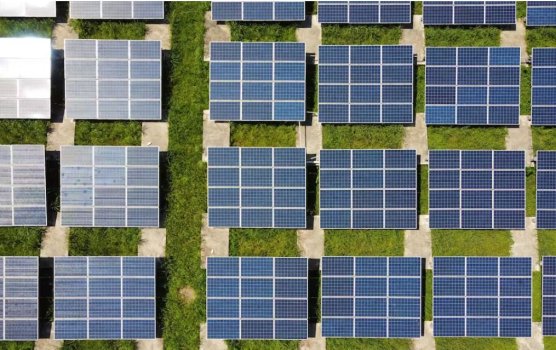Blockchain technology could be an environmental game-changer. In 2021, the United Nations Environment Program (UNEP) co-authored a report on how the technology could expand and accelerate renewable energy deployment and other climate change mitigation efforts.
It explained that blockchain – which allows people to conduct transactions without a central certifying authority, and creates digital, decentralized, immutable ledgers of the transactions – can support peer-to-peer energy trading, marketplaces for renewable energy certificates (RECs), micro-leasing platforms to fund climate change mitigation efforts, and more.
Firms in Australia, Thailand, Turkey and other nations have developed such blockchain-based solutions. In Singapore, Reneum established a new blockchain-based platform that mints and trades digital tokens representing generated clean energy, helping to finance more of it.
Eco-Business has partnered with Reneum to purchase tokens to offset its fossil fuel footprint. Reneum’s co-founder and chief executive Brianna Welsh shares how the firm enables people to contribute to the green energy transition.
Reneum aims to improve on existing REC trading platforms. What are these platforms’ limitations?
Many of them are built on anachronistic models. They are analogue, centralized, siloed and not fit-for-purpose in a digital economy. On the supply side, the certification and transaction process is arduous, opaque and cost-prohibitive, shutting out those with limited resources. Many markets do not have certification standards, excluding more stakeholders.
On the demand side, many of the transactions are handled through intermediate brokers with opaque pricing practices, eroding buyers’ trust. There are geographic restrictions on sales too. These are meant to match local supply and demand, but lead to bottlenecks. There’s only one planet, and polluted air from fossil fuels does not stop at national borders.
Continue reading: https://www.eco-business.com/news/how-blockchain-can-transform-the-renewables-market/
It explained that blockchain – which allows people to conduct transactions without a central certifying authority, and creates digital, decentralized, immutable ledgers of the transactions – can support peer-to-peer energy trading, marketplaces for renewable energy certificates (RECs), micro-leasing platforms to fund climate change mitigation efforts, and more.
Firms in Australia, Thailand, Turkey and other nations have developed such blockchain-based solutions. In Singapore, Reneum established a new blockchain-based platform that mints and trades digital tokens representing generated clean energy, helping to finance more of it.
Eco-Business has partnered with Reneum to purchase tokens to offset its fossil fuel footprint. Reneum’s co-founder and chief executive Brianna Welsh shares how the firm enables people to contribute to the green energy transition.
Reneum aims to improve on existing REC trading platforms. What are these platforms’ limitations?
Many of them are built on anachronistic models. They are analogue, centralized, siloed and not fit-for-purpose in a digital economy. On the supply side, the certification and transaction process is arduous, opaque and cost-prohibitive, shutting out those with limited resources. Many markets do not have certification standards, excluding more stakeholders.
On the demand side, many of the transactions are handled through intermediate brokers with opaque pricing practices, eroding buyers’ trust. There are geographic restrictions on sales too. These are meant to match local supply and demand, but lead to bottlenecks. There’s only one planet, and polluted air from fossil fuels does not stop at national borders.
Continue reading: https://www.eco-business.com/news/how-blockchain-can-transform-the-renewables-market/

